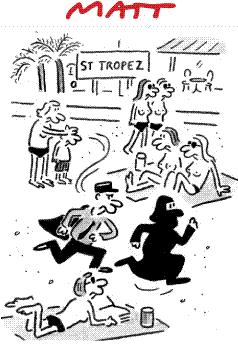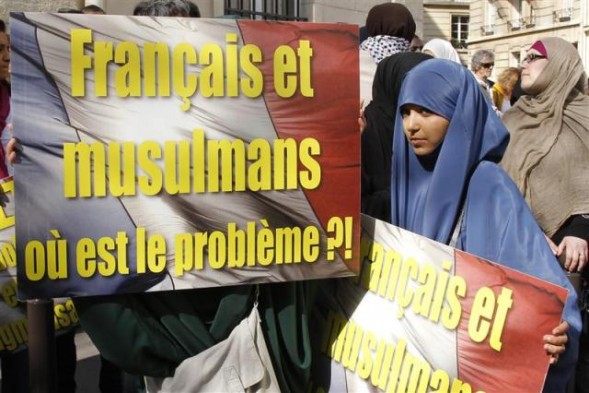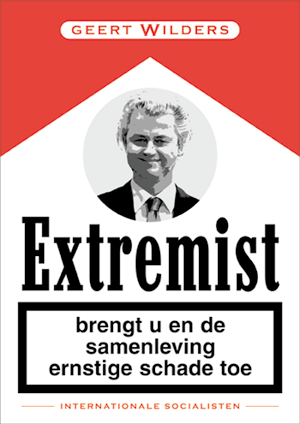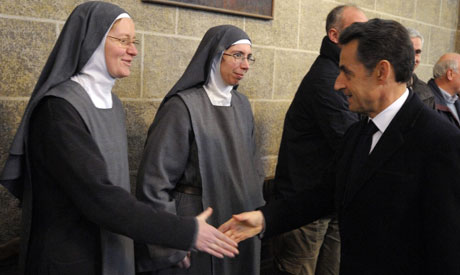Despite government assertions over its implementation, Rachid Nekkaz of the anti-ban lobby says no fines have been imposed.
Category Archives: Secular
Scotland and the veil
When a gang of youths launched a terrifying attack on a young Scottish Muslim family in broad daylight, the victims were left in no doubt about why they were targeted: the veil. Glasgow-born Samina Ansari and her loved ones were assaulted because she was wearing a traditional Islamic hijab, which covers the hair, but not the face.
It happened last year, when Ansari, her husband and their baby were driving along a main road. The gang, armed with bricks and chains and accompanied by a snarling dog, surrounded the car, shouting “get the Paki bastards” and “go back to your own country”, before attempting to smash the car windows.
Samina locked the doors while her husband frantically dialled 999, fearing for the safety of the baby in the back seat. One man brought the chain down on to the windscreen, while another tried to smash in through the passenger window. Luckily, the young Muslim mother was able to speed off when the men moved away from the front of the car.
“It was racist,” she said. “But it was also Islamophobic. It only lasted a minute-and-a-half, but the trauma lingered for months. I felt too scared to go out walking with my baby in a pram. It was horrible.”
The trauma of the attack pushed Samina into launching a campaign to educate the Scottish public about the veil and Muslim women’s decision to wear it. She accepts she faces an uphill struggle. Across Europe, hostility is growing against this most visible sign of Islamic faith, with many seeing it as provocative and political, or a sign of male oppression and the subservience of women.
Samina Ansari and the charity she works for, Amina Muslim Women’s Resource Centre, have made a documentary, Hijab – The Light Behind the Veil, to promote their reasons for wearing the hijab and describing the prejudice they face for donning a veil on a day-to-day basis.
At the launch of the film, politicians, police officers and community leaders gathered to watch it in the hope of gaining a greater understanding of Muslim women’s faith. The film will be distributed to public bodies to help teach state officials about the veil in the words of Islamic women.
Unfortunately, presumably in the interest of “balance”, the report finds it necessary to quote mad Maryam Namazie of the Worker-Communist Party of Iran on the veil:
“Is wearing it a choice for women, given you have an Islamic movement gaining political power and making it compulsory wherever they can? … I think the full-face-covering niqab should be banned. We also need to stand up to Islamism’s demands to restrict rights for citizens in society.”
So whose liberty, equality, fraternity is really at stake?
 A decent article on the French veil ban, in the Daily Telegraph of all places (and no, it’s not by Peter Oborne). There’s a good editorial in the Financial Times too, which states:
A decent article on the French veil ban, in the Daily Telegraph of all places (and no, it’s not by Peter Oborne). There’s a good editorial in the Financial Times too, which states:
“The ban’s defenders, who range across the spectrum of French politics, pretend the veil is a threat to France’s republican values. But this republican bigotry is in reality a cheap populist ploy, in large part dictated by the electoral calendar at a time when the xenophobic National Front is again scoring well in the polls.”
(The cartoon is from the Telegraph as well, via Inayat’s Corner.)
French interior minister accused of Islamophobia

The interior minister Claude Guéant has been accused of Islamophobia and dishonouring France after saying the growing population of Muslims in the country “poses problems”.
His comments were made on the eve of a debate within his party, the UMP, on Islam and secularism in France. The debate, organised by party leader Jean-François Copé, is itself controversial, with many party figures finding excuses not to attend, including Prime Minister François Fillon.
“The question worries our citizens: there are many who think the rules of secularism are being stretched,” said Guéant on a trip to Nantes. “In 1905 [the year the separation of church and state was brought into law] there were few Muslims in France, today there are between five to 10 million. This growth of believers and certain types of practices pose problems. It is clear that prayers in the street shock a certain number of people and the leaders of major religions know that this type of practice affects them negatively.”
Socialist Party spokesman Benoît Hamon said Guéant “dishonoured” France. “The right is not debating secularism, it’s debating Islam,” he said. “I feel ill when Guéant speaks. He dishonours France and the French. The Socialist Party concerns itself with subjects that focus on people living together, the real issues.”
Green MEP Eva Joly said Nicolas Sarkozy was attempting to outflank Marine Le Pen on the right in advance of the presidential elections of 2012 by launching “an Islamophobic campaign”.
SOS Racisme is suing the minister. Its president Dominique Sopo said the words “stigmatised a population because of their origin” by targeting Muslim Arabs. He added that the speech was worse than anything from Brice Hortefeux, Géant’s predecessor, who was successfully sued for racism while a minister.
See also Nabila Ramdani, “Sarkozy’s debate targets Muslims”, Comment is Free, 5 April 2011
French religious leaders warn against divisive Islam debate
The leaders of France’s six main religions warned the government on Wednesday against a planned debate on Islam they say could stigmatise Muslims and fuel prejudice as the country nears national elections next year.
Weighing in on an issue that is tearing apart President Nicolas Sarkozy’s ruling UMP party, the Conference of French Religious Leaders said the discussion about respect for France’s secular system could only spread confusion at a turbulent time.
The UMP plans to hold a public forum on secularism next week that critics decry as veiled Muslim-bashing to win back voters who defected to the far-right National Front at local polls last week and could thwart Sarkozy’s reelection hopes in 2012.
Stressing that faith should foster social harmony, the religous leaders said the debate could “cloud this perspective and incite confusion that can only be prejudicial”. “Is a political party, even if it is in the majority, the right forum to lead this by itself?” they asked in a rare joint statement.
The statement was signed by the leaders of the Roman Catholic, Muslim, Jewish, Protestant, Orthodox Christian and Buddhist faiths. The leaders formed the group last year to coordinate their approach to religious issues in public debate.
The faith leaders said France has held many long and serious debates about its secular system, introduced in 1905 to separate the church and state, and questioned the need for another one. “We are working for a common sense secularism,” they said. “Secularism cannot be separated from our fundamental values, especially the dignity and respect for the human person.”
Individual religious leaders have supported Muslims, who at about five million constitute France’s second-largest religion after Catholicism.
“It’s often difficult to be a Muslim in France,” Grand Rabbi Gilles Bernheim said last week. “This difficulty is worse today in this unhealthy climate, aggravated by talk that divides rather than unites,” the Jewish leader told the daily Le Monde.
French Protestant Federation head Pastor Claude Baty has joined Muslim leaders in announcing he would boycott the round-table discussions the UMP has scheduled for April 5.
The failure of multiculturalism and how to turn the tide – according to Geert Wilders
 Geert Wilders was invited to deliver the annual lecture at the Magna Carta Foundation in Rome on 25 March. His speech can be found on the PVV website, and has been enthusiastically reproduced at Jihad Watch, Atlas Shrugs, Winds of Jihad and other rabidly Islamophobic blogs. The British National Party in London are fans too, as indeed is the BNP’s former legal adviser Lee Barnes.
Geert Wilders was invited to deliver the annual lecture at the Magna Carta Foundation in Rome on 25 March. His speech can be found on the PVV website, and has been enthusiastically reproduced at Jihad Watch, Atlas Shrugs, Winds of Jihad and other rabidly Islamophobic blogs. The British National Party in London are fans too, as indeed is the BNP’s former legal adviser Lee Barnes.
Most of the content of Wilders’ speech is predictable. You know the sort of thing. Islam is plotting to conquer Europe (“Islam strives for world domination. The koran commands Muslims to exercise jihad and impose shariah law”) and the left has made a conscious decision to facilitate this takeover through its embrace of multiculturalism. According to Wilders:
“Leftist multiculturalists are cheering for every new shariah bank, for every new islamic school, for every new mosque. Multiculturalists consider Islam as being equal to our own culture. Shariah law or democracy? Islam or freedom? It doesn’t really matter to them. But it does matter to us. The entire leftist elite is guilty of practising cultural relativism. Universities, churches, trade unions, the media, politicians. They are all betraying our hard-won liberties.”
And not just the left. According to Wilders, “the establishment parties of the Right still harbour their belief that Islam is a religion of peace on a par with peaceful religions such as Christianity, Judaism, Buddhism and others”. Whereas, in Wilders’ opinion, “the truth is that Islam is evil, and the reality is that Islam is a threat to us”.
Wilders offers his solutions. “First, we will have to defend freedom of speech” (except of course when freedom of speech is used to attack Wilders himself). We must abandon cultural relativism, resist the encroachment of sharia law, “forbid the construction of new mosques” and strengthen the powers of the nation state in order to “stop immigration from Islamic countries”, while existing communities of recent migrant origin “must assimilate and adapt to our values”.
One proposal that hasn’t been heard from Wilders before, so far as we know, is to support and celebrate Muslims who decide to renounce their faith. Wilders states:
“An International Women’s Day is useless in the Arab world if there is no International Leave Islam Day. I propose the introduction of such a day in which we can honor the courageous men and women who want to leave Islam. Perhaps we can pick a symbolic date for such a day and establish an annual prize for an individual who has turned his back on Islam or an organization which helps people to liberate themselves from Islam.”
You might wonder whether this opens up the possibility of co-operation between Wilders and Maryam Namazie, who has played a prominent role in the campaign to encourage Muslims to abandon their faith. At any rate, it looks to me like Namazie and her Council of Ex-Muslims would be worthy recipients of Wilders’ prize. Wilders could also consider approaching Johann Hari, who might well be interested supporting this initiative – particularly if it involves his hero Ehsan Jami, who was expelled from the Dutch Labour Party for co-authoring an anti-Islam article with Wilders and has since joined the PVV.
Sarkozy’s UMP competes with Front National to win anti-Muslim vote, Socialists reject Tariq Ramadan
Islam has emerged as a central issue in the campaign for French local elections Sunday that President Nicolas Sarkozy’s party hopes to win by taking a tough line on the integration of France’s large Muslim minority.
Sarkozy, who faces an uphill battle for reelection next year, has set the tone by blurring the border between his UMP party and the National Front, the once-shunned anti-immigrant party that recently overtook him in opinion polls.
Interior Minister Claude Gueant, until recently Sarkozy’s chief of staff in the Elysee Palace, has fleshed this out with a series of statements flirting with the anti-Muslim rhetoric that has made National Front leader Marine Le Pen so popular.
“The French don’t feel like they’re at home here anymore,” Gueant said this month in a verbal wink and nod at voters upset by the large numbers of Muslims in the country. “They want France to remain France.” The minister has called the Western-led air strikes against Libya a “crusade,” evoking Christian-Muslim conflict, and suggested that patients in public hospitals must avoid wearing religious symbols – another issue concerning mainly Muslims.
This rhetorical escalation came as France neared a runoff vote Sunday in local council elections. Le Pen’s National Front surged to win 15 percent of votes in the first round on March 20, just two points behind Sarkozy’s UMP party.
Both the centre-right government and Le Pen declare their aim is to defend “laicite” – the aggressive French secularism that strives to keep religion out of the public sector.
But amid debate about offering halal food in school canteens and Muslims praying in the street because their mosques are too small, the term “laicite” is clearly code for the problems France has adjusting to its 5-million strong Muslim minority.
The debate has alienated many Muslims, even such moderate figures as Grand Mosque of Paris Rector Dalil Boubakeur, who announced Wednesday he would not take part in a public debate on secularism that the UMP plans to hold on April 5. He said the debate about Islam “has greatly upset and worried Muslims who feel stigmatised because of their faith.”
The debate has carved deep rifts in the UMP leadership, even pitting Prime Minister Francois Fillon against Sarkozy and the UMP secretary general Jean-Francois Cope.
The debate has also sown confusion on the left because of a petition against the Islam debate launched by Respect Mag, a magazine that aims to promote intercultural understanding. The UMP rounded on opposition Socialist Party leader Martine Aubry and former Socialist Prime Minister Laurent Fabius for supporting the text when it emerged that Tariq Ramadan, a Swiss-born Muslim activist, had also signed it.
Both quickly withdrew their support because of Ramadan, who is vilified here as a covert Islamist out to subvert France. “If these two (parties) had wanted to agree to open the door wide to Marine Le Pen, they would not have done anything differently,” said Ramadan, a professor of Islamic studies at Britain’s Oxford University.
NAMP among police groups to lose funding
 Hundreds of thousands of pounds of taxpayers’ cash doled out to fringe police groups representing homosexuals, women and Muslims is to be axed.
Hundreds of thousands of pounds of taxpayers’ cash doled out to fringe police groups representing homosexuals, women and Muslims is to be axed.
Home Office chiefs said they could no longer afford to fund the minority police groups. These also include in-force associations that support transsexuals, Sikhs, Christians, disabled and black police officers. Last night beat bobbies were “over the moon” at the decision.
But bosses at the staff associations slammed the decision, warning it could lead to their collapse. Zaheer Ahmed, president of the National Association of Muslim Police, said cutting funds would deprive the police of “important religious and cultural voices” and could see policing thrown back to the 1970s.
Funding will stop from April 1.
Update: The National Secular Society has predictably come out in support of the withdrawal of funding from NAMP. NSS president Terry Sanderson is quoted as saying: “The rise of these minority groups within the force has been a dangerous development, and we are very pleased that the funding has come to an end, albeit on grounds of cost rather than desirability.” Another of these “minority groups” is the Gay Police Association, and we look forward to Sanderson explaining to the LGBT community why he applauds the ending of funding for that group.
US TV host Bill Maher says Qur’an is ‘hate-filled book’
Interviewing Musim Congressman Keith Ellison on his “Real Time” show on Friday, the US TV host Bill Maher offers his take on the problem of “radicalized Muslims: “it’s been going on a thousand years this problem between Islam and the west. We are dealing with a culture that is in its medieval era. It comes from a hate-filled holy book, the Koran, which is taken very literally by its people.”
Sarkozy hails France’s ‘magnificent’ Christian heritage – one month before ban on Muslim veil takes effect
 President Nicolas Sarkozy, leader of an officially secular republic, hailed France’s Christian heritage Thursday as his right-wing party questioned Islam’s role in society.
President Nicolas Sarkozy, leader of an officially secular republic, hailed France’s Christian heritage Thursday as his right-wing party questioned Islam’s role in society.
Sarkozy’s speech in the Catholic pilgrimage town of Puy-en-Velay came one month before France is due to formally begin a ban on the wearing of full-face Muslim veils in public places and amid controversy over religious identity.
Critics of the president and his majority party, the centre-right UMP, have argued against stirring dangerous prejudices and endangering France’s strictly secular identity by calling for a national debate on religion.
But Sarkzoy, who faces a tough challenge from a rejuvenated far-right in next year’s presidential election, remains undeterred, and reached out to Catholic voters in a way designed to annoy his left-wing critics.
“Christianity left us a magnificent heritage of civilisation. As a secular president, I can say that,” he said, speaking in a town that for centuries has been a way station for pilgrims heading to Santiago de Compostela. “This heritage comes with obligations, this heritage is a privilege, but it presents us above all with a duty: It obliges us to pass it on to future generations, and we should embrace it without doubt or shame,” he said.
Sarkozy’s renewed celebration of Christianity came as the leadership of his UMP party was trying to start a national debate on religious practice, and in particular on the place of France’s more than five million Muslims.
Last year’s debate on national identity raised political tension to boiling point and saw France widely criticised, particularly as it came as Sarkozy targeted foreign-born Roma Gypsies for expulsion. Opponents accused the leader, who is struggling in the polls, of stirring racial divisions in a bid to win votes from the far-right National Front, now gaining ground under its founder Jean-Marie Le Pen’s daughter, Marine.
Sarkozy appears to be returning to the fray. Last month he declared that multiculturalism had been a “failure” and said that he wanted to see develop a “French Islam, not an Islam in France.” Now, UMP secretary general Jean-Francois Cope has called a meeting on April 5 to discuss religious practice “particularly that of the Muslim sect”.
On April 11, a law banning face-covering garments like the niqab or the burqa will come into effect, forcing the tiny minority of French Muslim women that wear them to remove them or face arrest and fines.
See also “Sarkozy’s Islam debate opens rift in French ruling party”, FaithWorld, 4 March 2011
